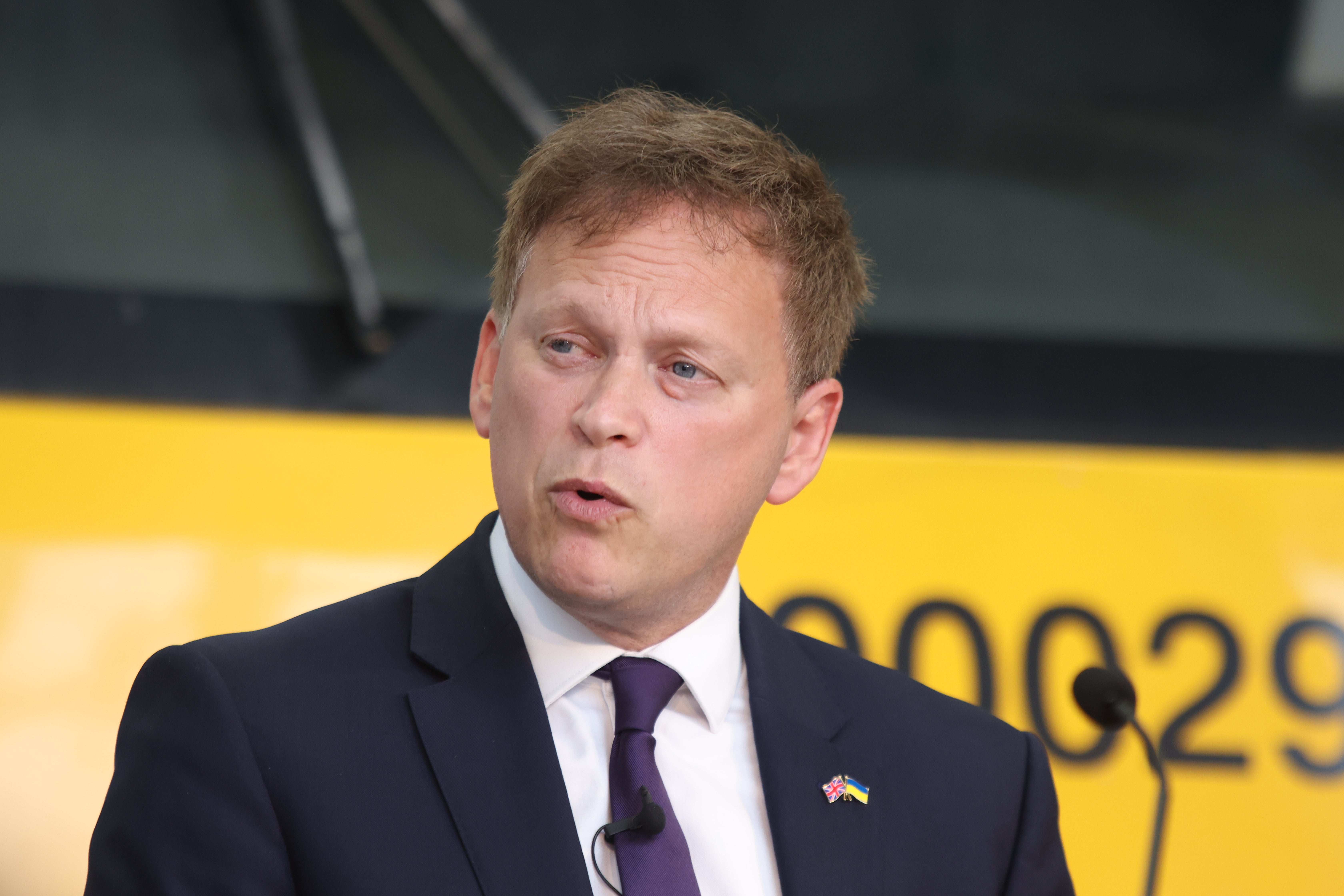Grant Shapps vows to increase defence spending to 3% of GDP
The Transport Secretary’s Tory rival Rishi Sunak is preparing to launch his bid for No 10 with a pledge to cut taxes.

Your support helps us to tell the story
From reproductive rights to climate change to Big Tech, The Independent is on the ground when the story is developing. Whether it's investigating the financials of Elon Musk's pro-Trump PAC or producing our latest documentary, 'The A Word', which shines a light on the American women fighting for reproductive rights, we know how important it is to parse out the facts from the messaging.
At such a critical moment in US history, we need reporters on the ground. Your donation allows us to keep sending journalists to speak to both sides of the story.
The Independent is trusted by Americans across the entire political spectrum. And unlike many other quality news outlets, we choose not to lock Americans out of our reporting and analysis with paywalls. We believe quality journalism should be available to everyone, paid for by those who can afford it.
Your support makes all the difference.Grant Shapps has said the UK “can’t afford not to” boost defence spending and wants to increase it to 3% of the country’s gross domestic product.
Writing in The Times, the Transport Secretary said: “Freedom is not free. That is why, as prime minister, I will raise defence spending to 3% of GDP, in contrast to Nato’s recommended minimum of 2%.”
His Tory leadership rival, Jeremy Hunt, also said he would spend 3% of GDP – a measure of the size of the economy – on defence if elected to succeed Boris Johnson.
Mr Johnson recently committed to increasing defence spending to 2.5% of GDP by the end of the decade after a Cabinet row over the issue.
But this is not enough to prevent Britain from falling behind other Nato countries in the spending league table, including Poland and Lithuania, which have increased their military budgets following Moscow’s invasion of Ukraine, according to Mr Hunt.
Mr Shapps pointed to the kit limitations of the Navy and the RAF, adding: “The Army is shrinking in manpower, artillery and armour. Quality is vital, but quantity has a quality all of its own.
The defence of the realm is the first duty of Her Majesty's Government
“We have had to wait a decade to replace the venerable Nimrod subhunter with the new Poseidon aircraft. The Vanguard-class boats carrying the Trident nuclear deterrent are based on the Clyde, and they are nearing the end of their lives.
“The extra money I am proposing will help to bring forward the modernisation of the deterrent with new Dreadnought-class boats. We will accelerate the in-service dates for programmes that have been ‘shifted to the right’ to ease budgetary pressure.
“The defence of the realm is the first duty of Her Majesty’s Government.
“Can we afford to spend more money on this core responsibility? The answer is, we can’t afford not to.”
Launching his campaign on Saturday, the 53-year-old Welwyn Hatfield MP vowed to address the cost-of-living crisis and rebuild the economy to be the biggest in Europe by 2050.
Rishi Sunak, meanwhile, is preparing to launch his bid to become prime minister with a pledge to cut taxes – but only once inflation has been brought under control.
At his campaign launch event on Tuesday, the former chancellor will insist he has a plan to deal with the economic “headwinds” the country is facing, saying it is a matter of when, not if, the tax burden starts to fall.
He will receive heavyweight support from another ex-chancellor, Lord Lamont, who said Mr Sunak had the courage to take the “tough decisions” needed to deal with the “extremely serious” economic situation.